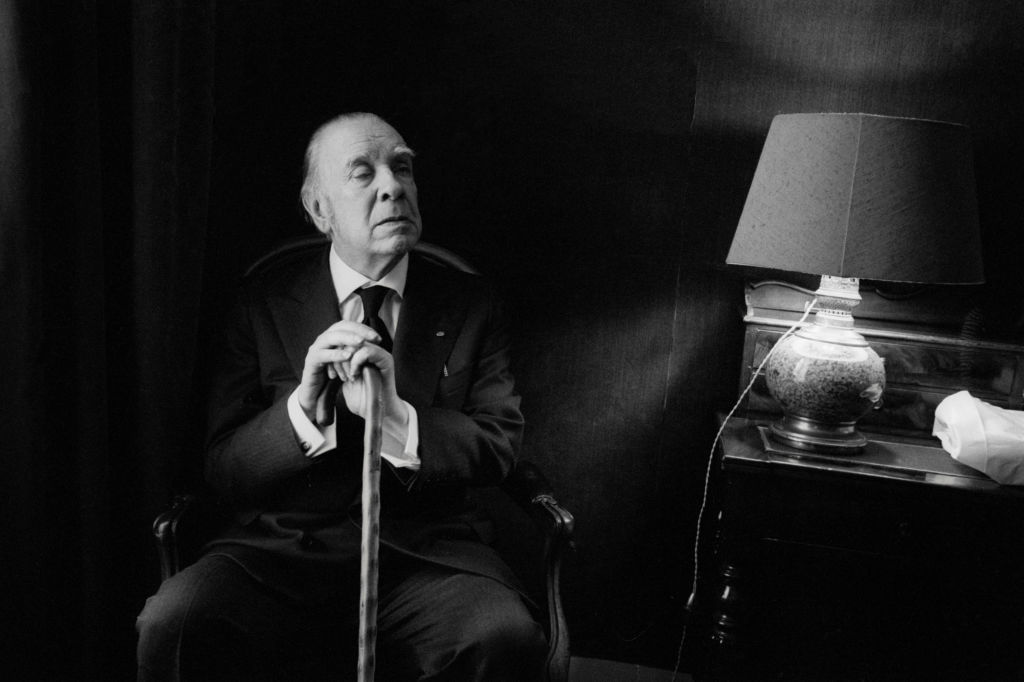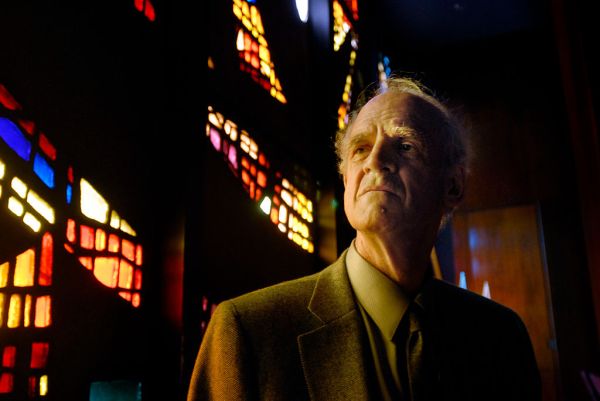In May 1940—30 years before his conversation with National Review founder William F. Buckley—the Argentine writer Jorge Luis Borges published Tlön, Uqbar, Orbis Tertius, the closest thing to a perfect narrative I have ever read.
The story is a brain-melting account of the disintegration of ordinary reality after contact with a fictional world called Tlön. Revisiting the tale recently brought me back to my first year of college and my simultaneous encounter with American identity politics and Columbia University’s great books core curriculum—an encounter which continues to shape my life to this day.
Most of the events narrated in Tlön, Uqbar, Orbis Tertius take place between 1935 and 1940, with a postscript added seven years later, in 1947. By then Borges—who wrote himself into the fictional story—has learned that Orbis Tertius was a secret society of intellectuals, founded in the 17th century, with the goal of producing a full description of an invented country called Uqbar. That description included references to its literature, much of which concerned the mythical world of Tlön. Two hundred years later, an American millionaire revived the project and expanded its scope to an entire description of the world of Tlön. The new effort resulted in a 40-volume Encyclopedia of Tlön, the 11th volume of which had come to Borges’ possession accidentally in the early months of 1938.
The people of Tlön deny the reality of the material world and the existence of permanent states. For them, there are only events—actions, movements, and processes—which exist only inasmuch as they are observed, with no independent or substantive being of their own. The root language of Tlön therefore has no nouns, only verbs. For example, no word corresponds to the moon; there is only the verb to enmoon or to moonate. For Tlönians, there is no reality underpinning what we see, hear, smell, touch, taste, or even think. There is no there there.
Over centuries, Tlön’s metaphysical idealism begins to influence its manifest reality. Objects begin to duplicate themselves, as when two people are searching for a lost pencil and both find it, each pencil conforming to the expectations of the seeker. By 1942, Borges reports that things from Tlön began to appear in our own world, challenging the laws of matter. Small metal cones so heavy that a grown person could hardly lift them, for example, crop up on earth. In 1944, all 40 volumes of the Encyclopedia of Tlön are discovered in a library in Memphis, Tennessee and republished—with widespread effects on human culture. By 1947, when the fictional Borges writes the postscript, the human past is becoming inaccessible, as only the history of Tlön is taught in schools. “Contact with Tlön” he writes, “has disintegrated this world.” In a hundred years, “the world will be Tlön.”
It’s a sad story, not of liberation from the chains of metaphysical realism but of abandonment into an existential abyss, an embrace of being that denies essence. It’s also a story about the seductiveness of totalizing accounts of identity, and about how ideological constructions can protrude into and shape reality. This is what had reminded me of my freshman year of college, when I was first presented with a brand of identity politics that, like the fictional world of Tlön, threatened to destabilize my own sense of self.
Growing up in the Dominican Republic, I did not have a notion of being Latino—I was just Dominican. Had I been asked whether I was “Hispanic,” I would have guessed that I was, since I spoke Spanish, but I probably would not have quite understood the question. It wasn’t until I arrived at Corona, Queens, in the mid 1980s at the age of 12, that I began to think of myself in those terms. In America, I learned that I was a “person of color” and that I was Latino or Hispanic (or, lately, Latinx).
I later received a traditional liberal arts education at Columbia University without ever having to leave the cauldron of ethnic identity that is New York. But the politics of minority identity I encountered at Columbia often felt like a straight-jacket of expectations and assumptions, an identity box designed by American race politics that refused to actually see me.
The celebration of diversity I encountered seemed to look past individuals, flattening out identity into prefabricated stereotypes and offering a rubric of ideological postures that I was supposed to adopt as a kind of birthright. Late in my first semester, I remember submitting some poems for a public bilingual reading organized by Latino student groups. My poems were accepted, but on the night of the reading I found myself completely out of place: All the other entries were about ethnic and cultural identity, while mine were about heartbreak and metaphysics. When I declared a major in comparative literature, everyone assumed I was studying U.S. Latino and Latin American literature, when I was in fact trying to understand French theory. I was Latino, but on campus that meant a host of things that didn’t feel applicable to me. I was caught in a reality I could not deny, but that reality did not feel real; I had encountered my own Tlön.
At the same time, I was grappling with a different kind of strangeness courtesy of Columbia’s great books curriculum. Like all other first-year students at Columbia College, my education began with Homer’s Iliad and Odyssey, followed by a spate of Greek plays by Aeschylus, Sophocles, Euripides, and Aristophanes. Then came the ancient historians Herodotus and Thucydides, philosophers Plato and Aristotle, religious texts from the Hebrew and Greek Bible, and medieval, renaissance, and modern classics.
Those texts also presented alien minds and strange worlds to me—that’s what was most memorable about them. The fact that the authors I was reading were mostly “white,” as everyone liked to point out, largely didn’t matter. Their strangeness and their familiarity resonated at a much deeper level. Those writers grappled with dilemmas that felt intimate and decisive despite coming from unimaginably different worlds. And all along I discussed them with peers, real people in front of me who in their own way were also strange and alien, and who brought with them experiences that felt as distant from mine as Homer’s or Achilles’.
Through those encounters with texts and peers who were both different and alike from me, I began to put together a sense of myself, of what mattered to me and of the kind of life I wanted to live. I could see clearly that many aspects of my culture sprung from the European and Mediterranean roots I was encountering in the classroom. I could also see the ways in which I had been severed from aspects of my ancestry, how parts of what came to be me had been truncated and deformed, exploited, and demonized in their encounter with “the West.” It was all complicated, but it was also rich, liberating, and—unlike Tlön—real.








Please note that we at The Dispatch hold ourselves, our work, and our commenters to a higher standard than other places on the internet. We welcome comments that foster genuine debate or discussion—including comments critical of us or our work—but responses that include ad hominem attacks on fellow Dispatch members or are intended to stoke fear and anger may be moderated.